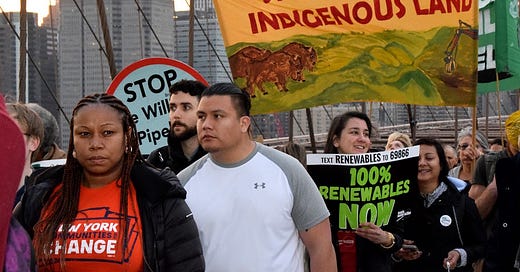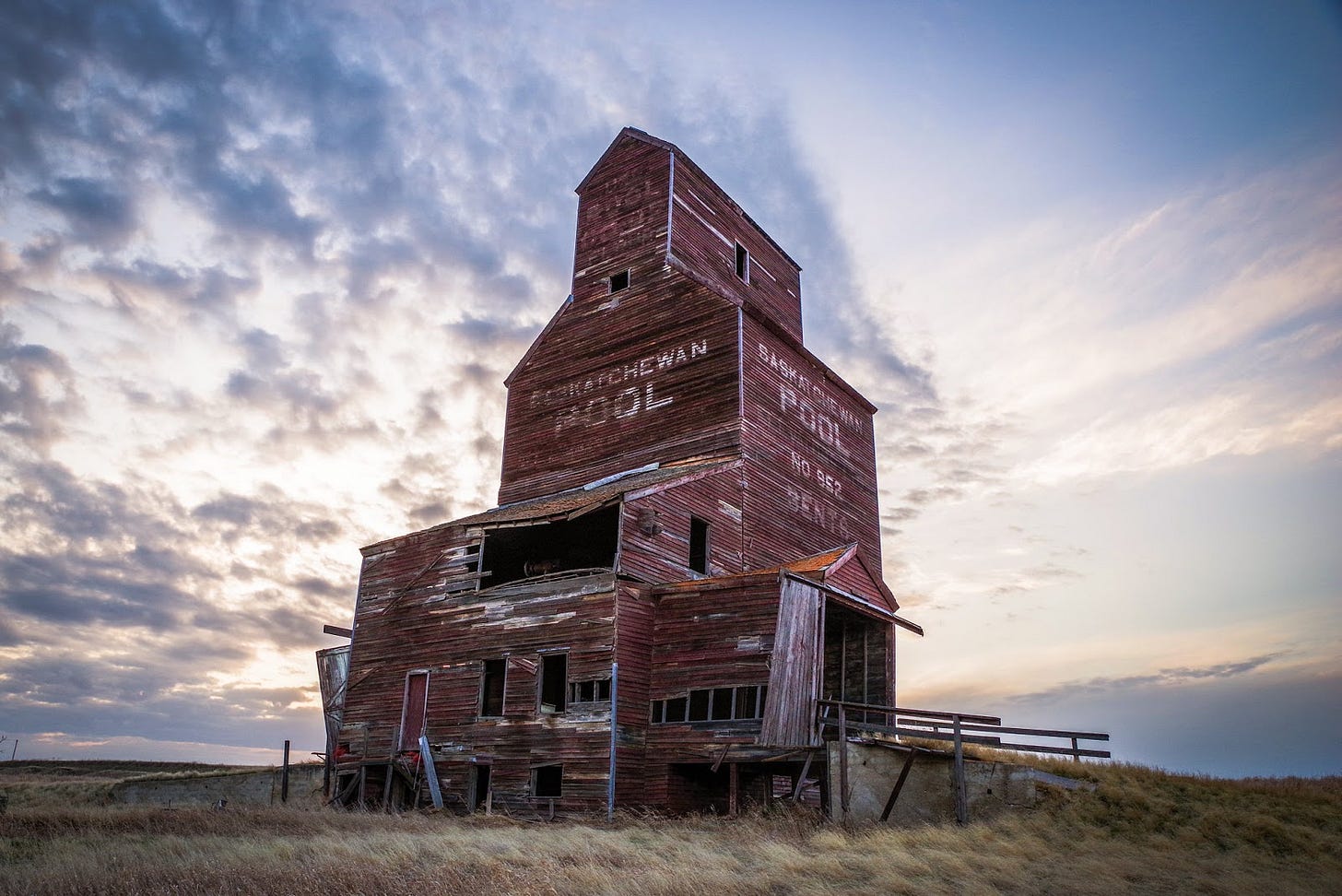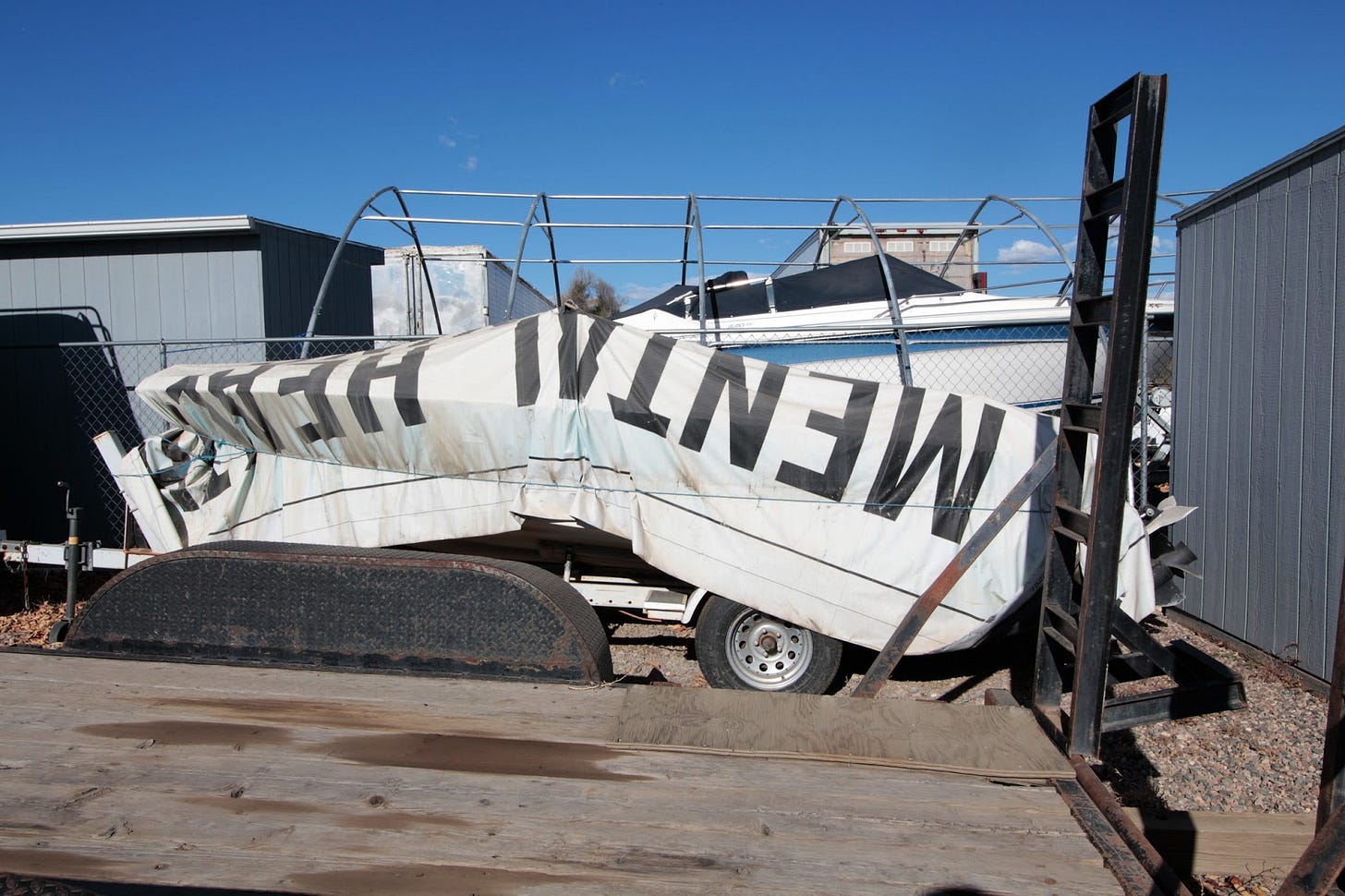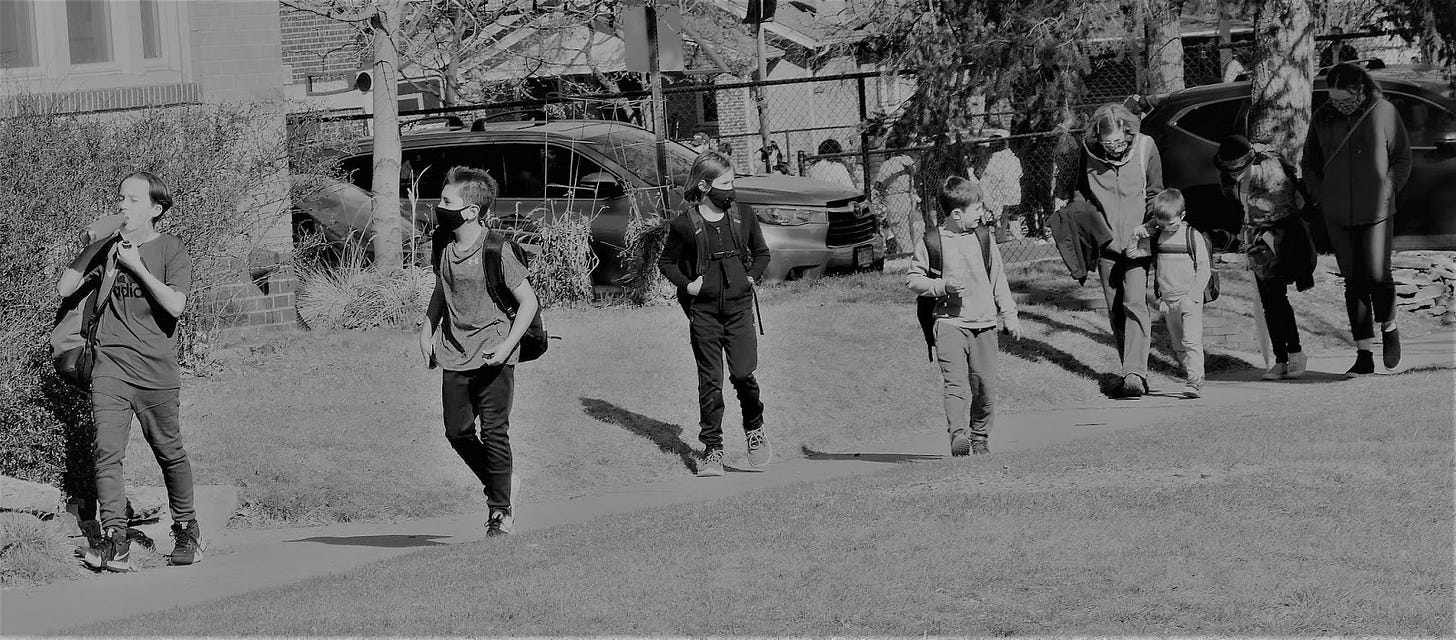Climate action means reconciliation and reparations
Since the last time Dispatches from the Left went out, two stories continue to dominate headlines across the country. One is the ongoing discoveries of unmarked graves at the sites of former “residential schools,” including here in Saskatchewan. And the other is the escalating climate crisis, which, over the past month, has caused over one hundred humans to die from extreme heat, led to the deaths of perhaps one billion sea creatures on the west coast, caused infrastructure to fail, and ruined or potentially ruined millions of dollars in crops. Superficially these stories seem to have little to do with each other, but the dispossession and death of Indigenous children and climate change are intimately linked.
Climate change is colonialism. Diane Greene Lent via Flickr
As the Truth and Reconciliation report tells us, the genocidal policies of the Canadian government, policies in which residential schools played an enormous part, were about gaining control of land and resources. In Saskatchewan, the violent dispossession of Indigenous people has been a way of gaining land for the railroad, for farm settlements, and, to this day, for pure profit. The violence against Indigenous people that was committed to gain control of the land has also been perpetuated against the land, with grave consequences for the environment. The grasslands of southern Saskatchewan are one of the most threatened ecosystems on the planet, and they, like northern Saskatchewan’s peatlands, are key players in managing climate change.
The profound importance of repairing the harm caused by Saskatchewan’s violence against Indigenous people and its broken relationship with the land is part of the reason why two recent stories about the management of land in the province are so important. Saba Dar’s story for the Sask Dispatch, called “Selling off Saskatchewan” is about the way the province continues to sell off Crown land to the highest bidder, despite the fact that Indigenous people have an inherent right to that land, and despite the fact that privatizing it has devastating consequences for local culture, biodiversity, and the global environment. Katie Doke Sawatzky’s story “Sharing Treaty Land” in Briarpatch is about the Treaty Land Sharing Network, a grassroots group of landowners in Saskatchewan who are “committed to implementing the Treaty relationship” and sharing access to their lands with Indigenous people. Both stories reflect the violence at the root of the settlement of Saskatchewan, and both offer visions for the possibility of restoring better relations. There can be no reconciliation without the return of land, nor is there any solution to climate change that does not restore habitats to the management of Indigenous people.
Elevators symbolize both displacement and community. Kevin Carruthers via Flickr
Saskatchewan is a complex place with a complex history and culture. More than one thing can be true about this place at once. The province is, and always has been, home to deeply entrenched racism and colonial violence. It would not exist without that violence. It has also been home to a culture of cooperation and interdependence. It would not exist without those things. Acknowledging the harms that exist here and doing the work of repairing them can’t be done without accessing that history of cooperation and interdependence. The first white people to come to what would become Saskatchewan could not have survived without the diplomacy, interpretation, guidance, food preparation, and more that was done by Indigenous people, particularly Indigenous women. Without those good relations, they would have died. The settlers who live in Saskatchewan now will not survive the future of climate change if we do not do what needs to be done to restore good relations. And that means restoring land.
Take one symbolic gesture and call me in the morning
On July 5 the Saskatchewan Medical Association announced a Saskatchewan chapter of the PaRx program - a “national nature prescription service” that would see healthcare providers write an actual prescription for getting outdoors for patients who are suffering from stress or anxiety or other mental illnesses. This is a bold step forward from the dark days of the past, when doctors were only able to recommend getting more fresh air. Whether you find the idea of being prescribed a dose of nature charming or insufferable is a personal preference. However, the program’s apparent lack of insight into the structural barriers that prevent people from spending extended periods of time in nature is a pretty good indicator of the disconnect between healthcare providers and health systems and the material conditions of the general public. Not to mention that this kind of program is likely wildly overestimating how enthusiastic individuals who are suffering mental health symptoms acute enough to get them to the doctor’s office will be to have a physician write “go outside :)” on a prescription pad and send them on their way.
Fresh air is no cure for society. Michael Ellis via Flickr
Just as the overwhelming majority of people are aware that smoking is bad for them and vegetables are good for them, ignorance of the fact that fresh air is healthy is really not the primary barrier that prevents people from going for a hike. The things that keep people indoors, away from the lake or the creek or the forest or even the urban park, are largely structural. Many people don’t have access to transit that can get them to a lake or river or hiking trail, and Canada’s fixation on the car has made many places unsafe for pedestrians and cyclists to travel. People who work long hours don’t necessarily have the time or the energy (even if they have the desire) to spend hours enjoying nature. People who are racialized or gender non-comforming or otherwise visibly a member of an oppressed demographic may not feel comfortable or safe in public spaces due to racism and overpolicing. All too often in this country, going for a walk has proved unsafe and even deadly for queer people and for racialized people.
What would be more meaningful than a prescription for the outdoors would be for physicians to turn their considerable privilege and influence towards fighting for things that will improve the material conditions of people’s lives. Things like higher wages, public housing, nationalized childcare, free transit. Physicians should be recognizing the threat that racism, queerphobia, and policing pose to public health. They need to be incorporating a structural analysis of power into their practice. Doctors should understand the influence economic insecurity, climate anxiety, racism, and state violence have on patients. It’s not enough for them to know a good treatment if they aren’t willing or able to address the cause of the complaint at its root. People don’t need to be told to go outside, just as they don’t need to be told that fresh food is healthy for them. What they need is for the barriers to access to be eliminated.
F*ck them kids
This seems to be the Sask Party’s sentiments for youth under the age of 12. The province lifted all COVID-19 restrictions on July 11th, even though the province failed to meet the vaccination targets they had set out as a guideline for reopening, and even though children under 12 haven’t been vaccinated at all. Now, as throughout the pandemic, parents of young children have largely been left to figure out how to keep their kids safe on their own in the absence of good public policy or guidance.
Families need more support. Daniel Moskowitz via Flickr
Much COVID policy from the past year and a half seems to be based on the (incorrect) early belief that children didn’t get sick from the virus. And even though it’s now known that kids can catch the illness, transmit the illness, become extremely sick from the illness, and even die from the illness, decisions about how to go forward are being made without them in mind. After 16 months of stress and isolation, while many are celebrating the return to “normal,” parents of young children (as well as immunocompromised people and anyone with the good sense to know this is far from over) are grappling with what boundaries they have to place on their own lives to keep their kids safe. Many are also feeling increased anxiety about what September will look like, given that transmission in schools is a significant concern that isn’t being addressed at all.
The dominant society - both people and power structures - in Saskatchewan isn’t particularly interested or invested in the wants and needs of children and their parents beyond their role as demographics that can be marketed to. This disdain for children and their mothers, along with the racism and misogyny that are foundational in this province, is what allows such high rates of teen pregnancy and child poverty, and such low wages and such high costs for daycare and housing. So it’s natural that the province would do nothing to ensure the safety and health of children under 12, or to protect their parents from the social and economic consequences of having sick kids. The old adage is that it takes a village to raise a child. The structure of our society often denies that village to parents unless they have the means to purchase it. This has never been more true than throughout the pandemic, when those raising children abruptly had the few social structures that exist to support them ripped away. And now, as the province declares the pandemic both over (no more public health measures) and not over (because it’s not over), people raising children are staring down a second summer and return to school with even less guidance than before.
Now would be a great time to see communities organizing in support of parents and guardians to put pressure on policy makers to protect the health and safety of kids. Individuals should also continue to observe physical distancing and masking out of respect for the fact that a large and vulnerable segment of our population remains completely unprotected from the virus. There’s been a lot of discussion about “learning loss” among kids, but a more important loss has been the way children and those raising them have been alienated from the larger culture by COVID-19 responses.
Saskatchewan needs more independent journalism. Because let’s face it, who else is going to give you this content? But without the backing of corporations like Postmedia, we rely on your support to keep producing high-quality journalism that challenges the mainstream media consensus. Donate now to help us sustain and expand our work.







